
APAC, Jan 30, 2023
30 January. By Toby Alcock.
At Logicalis, as we look forward to yet another busy and challenging year for the IT industry, we've put together the strategic technology trends for 2023 that can help IT leaders see through the current economic and market challenges and deliver sustainable business outcomes that matter.
Have a great read.
Digital innovation and sustainability
There has been a significant shift in customer concerns towards the environment, with 85% of global consumers willing to pay more for sustainable alternatives. Consumers are no longer satisfied with an organisation's intention and promise to 'go green'. This year customers will want to see transparent and demonstratable action.
In 2023 digital innovation in sustainability and environmental issues will no longer be an afterthought. Businesses will increasingly look to digital managed service providers (MSPs) to balance efficiency gains with cost savings while driving greater business sustainability. It will become even more apparent in the coming year that choosing the right MSP to transition to the cloud will reduce infrastructure and energy costs and make more efficient use of resources.
Cybersecurity
We enter 2023 following a series of high-profile cyber-attacks and data breaches, such as the Uber 2022 security breach. The rise in ransomware and cybersecurity attacks will continue to be a primary threat to organisations of all shapes and sizes. Yet, with the looming recession and subsequent economic turbulence, many businesses will be tempted to tighten their belts and cut cybersecurity budgets, thereby exposing themselves to cybercriminals as easy targets.
The cybersecurity challenge in 2023 will be maintaining and improving cyber defences while ensuring a cost-effective approach. The key is efficiency, which involves simplification and commodification. This year, we will see more businesses looking to find and take advantage of the skills and broad experience of security specialists to reduce those heavy IT cost burdens and improve their security posture.
Talent shortage
The problem CIOs face regarding the strength of their cyber security teams will become even more challenging in 2023. Last year the Institution of Engineering and Technology estimated a shortfall of over 173,000 workers in the sector – working out to be an average of 10 unfilled roles in each UK business alone.
Talent shortages have made recruiting more competitive than ever. Candidates now have the upper hand, scouting for workplaces that offer better work-life balances, hybrid or flexible working, and better pay. In 2023 we will see a big trend in using an expert outsource MSP for cyber security and other non-business specific roles.
Recession-proofing – shifting to consumption based Opex
Moving to the cloud is the most effective way to reduce capital expenditure – moving a data centre refresh cost into an operational expense that can scale up or down as needed. And we’ll continue to see SD-WAN paving the way for the future of hybrid working, with businesses looking to deliver agile, cost-effective connectivity and a ubiquitous employee experience.
This year we will continue to see the move towards managed services as the demand for predictability and flexibility rises, and the ongoing skills shortage shows no sign of slowing.
Finding the right Managed Service partner will be critical to support the drive we’ll see to SD-WAN and cloud, crucial solutions helping customers navigate financial headwinds.
Digital workplace & sustainability
The pandemic was a massive catalyst for organisations to digitalise more of their business, work interactions, and employee collaboration. As a result, employees have enjoyed the idea of remote/ hybrid working as it provides them flexibility and autonomy.
And the digital workplace won't be going away. A Gartner report highlighted that 40% of employees would leave their role if their employers tried to enforce an entirely in-person office environment. Continuing the option of remote and hybrid working will ensure organisations can retain the top talent they need to thrive while also delivering more sustainable working practices by reducing business travel and investing in digital collaboration tools.
In conclusion, the pace of change we saw last year will certainly continue. As an industry, we thrive on innovation, competition, and new challenges, and we achieved so much in 2022.
2023 will be another game-changing year, and I look forward to seeing the tremendous progress we can architect together.
Related Insights
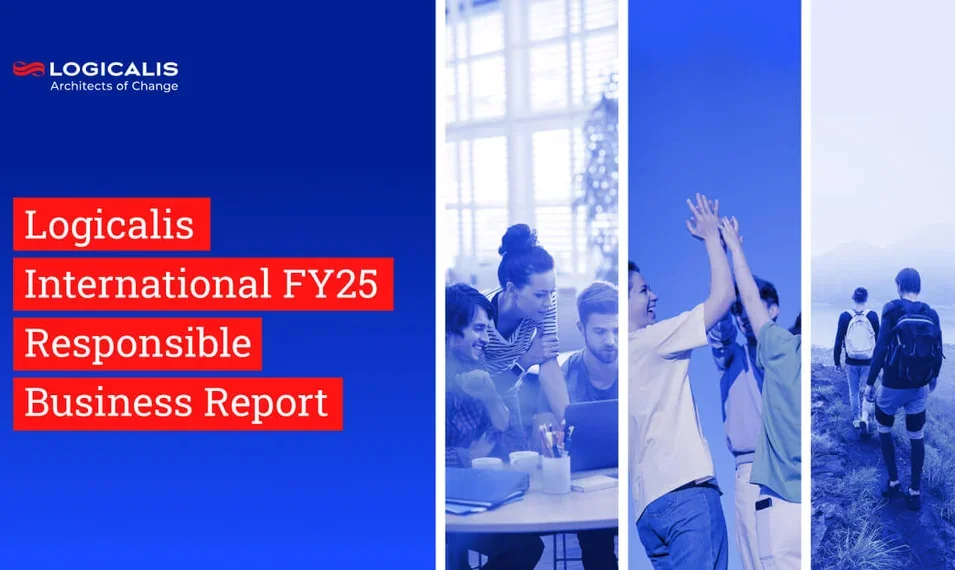
APAC , Oct 28, 2025
Logicalis achieves major sustainability milestones and expands global community impact
Logicalis, a leading global technology service provider, has announced significant progress in its FY25 Responsible Business Report, demonstrating measurable impact through strategic environmental, social, and community initiatives.
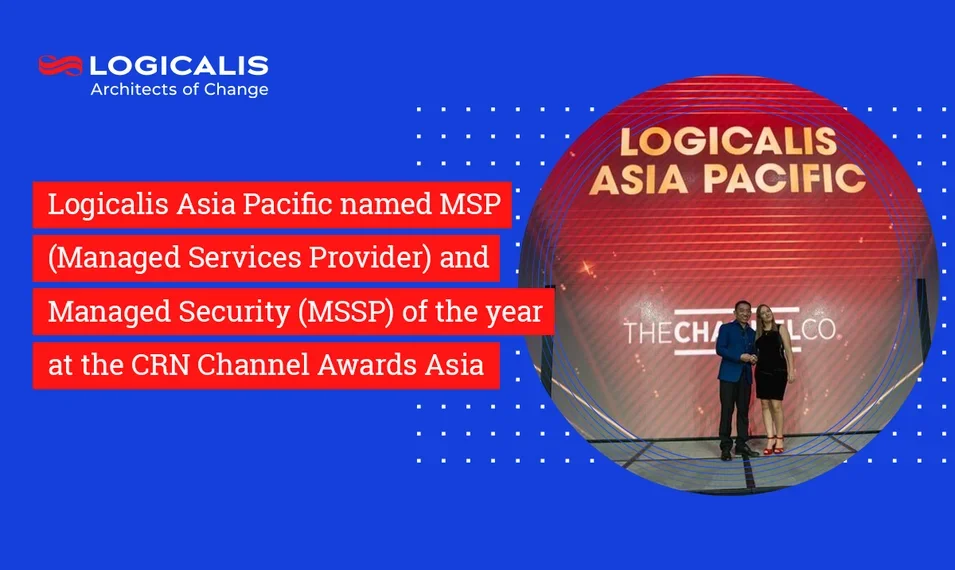
APAC , Sep 29, 2025
Logicalis Asia Pacific named MSP (Managed Services Provider) and Managed Security Service Provider (MSSP) of the year at the CRN Channel Awards Asia
Logicalis Asia Pacific is proud to announce that it has been awarded the prestigious title MSP & MSSP of the year at the CRN channel awards Asia.

APAC , May 23, 2025
Logicalis becomes first Cisco XDR CPS Specialisation Partner to offer global Cisco MXDR
Logicalis, the leading global technology service provider, today announces it has achieved the Cisco Extended Detection Response (XDR) Cisco Powered Services (CPS) Solution Specialisation and becomes a Cisco XDR CPS Specialisation Partner.
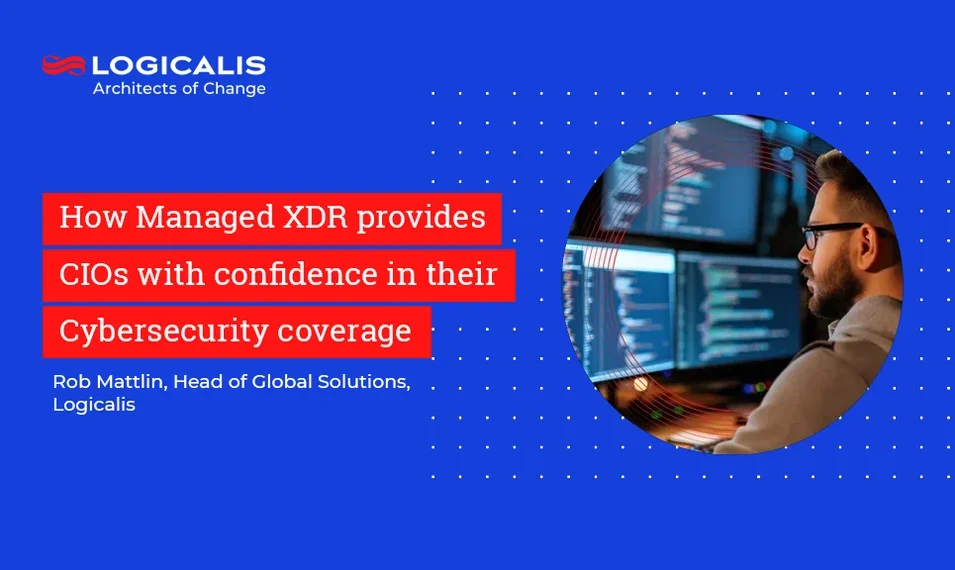
APAC , May 15, 2025
How Managed XDR provides CIOs with confidence in their Cybersecurity coverage
The latest CIO report from Logicalis reveals that despite record spending on cyber, 91% of CIOs across Asia Pacific reported a breach in 2024, with 97% stating improvements are needed in their security coverage.
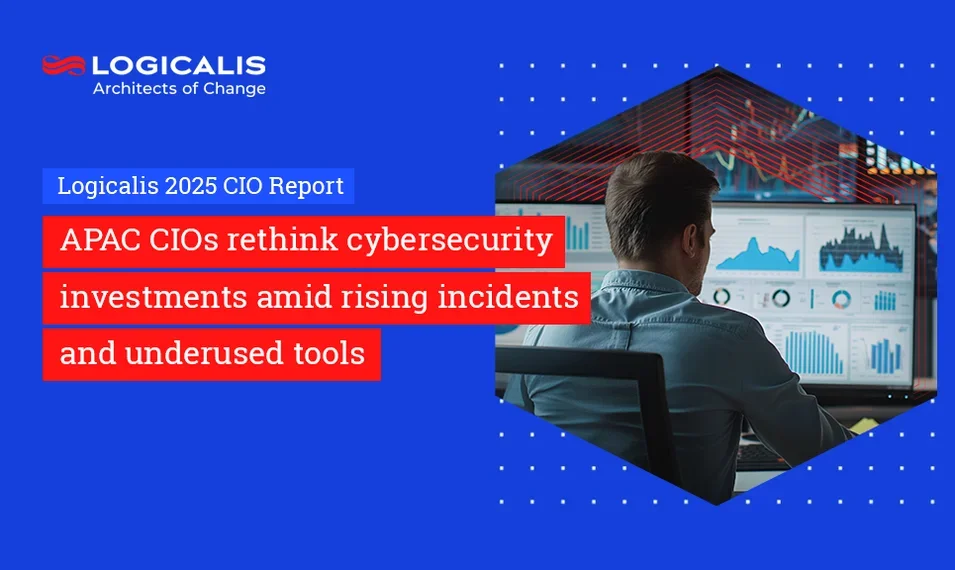
APAC , Apr 29, 2025
Logicalis 2025 CIO Report: APAC CIOs rethink cybersecurity investments amid rising incidents and underused tools
Logicalis, the leading global technology service provider, has revealed that chief information officers (CIOs) are struggling to derive value from security investments amid an expanding threat landscape according to its annual CIO Report.

APAC , Apr 21, 2025
Logicalis expand APAC SOC services with launch of Cisco MXDR
The global MSP becomes the first Cisco partner in APAC to launch Cisco Extended Detection and Response (XDR) as a Global Managed Service

APAC , Mar 26, 2025
Why the Singapore-Johor Special Economic Zone Will Shape APAC's Tech Future
With a strong regional footprint and significant investment, Logicalis Asia Pacific stands poised to capitalise on the unique opportunities presented by the Johor-Singapore Special Economic Zone (JS-SEZ). Through its strategic partnerships with tech giants Cisco and Microsoft, Logicalis is uniquely positioned to drive innovation and growth within this ambitious cross-border initiative.
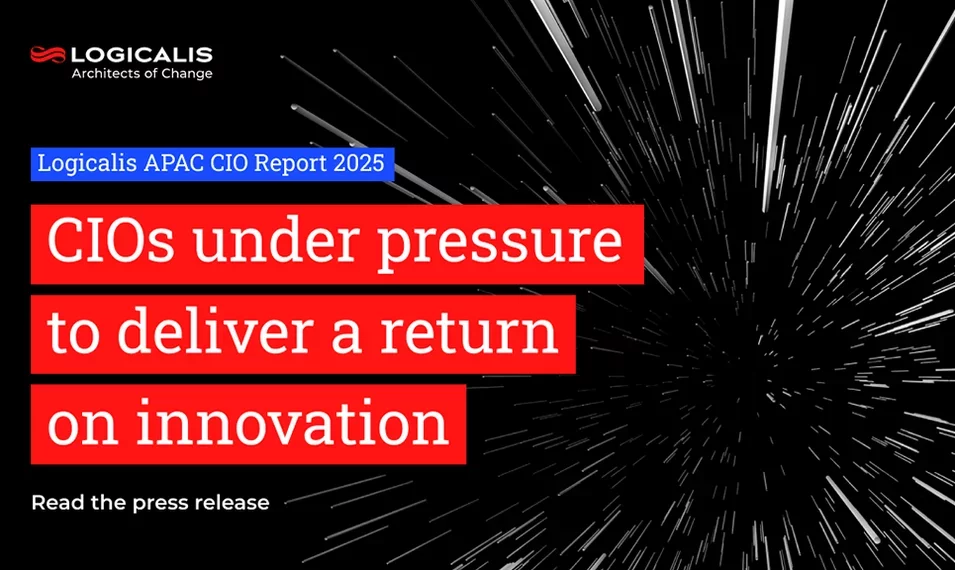
APAC , Mar 17, 2025
Eleventh annual Logicalis CIO Report 2025 finds 96 per cent of APAC CIOs are prioritising technology to drive new revenue streams
Logicalis, the leading global technology service provider, has released its annual CIO Report, which reveals that 95% of organisations are actively investing in technology to create new revenue streams within the next 12 months.
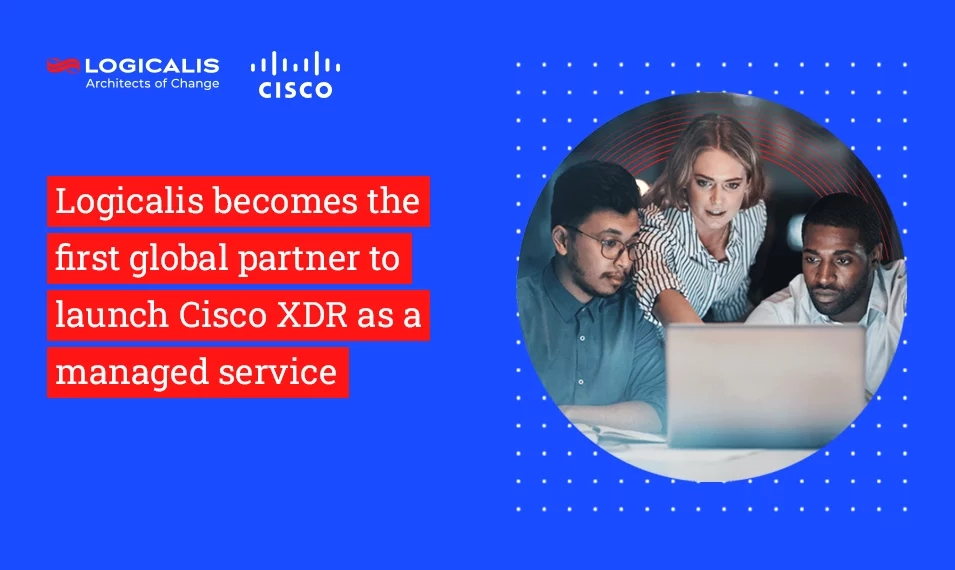
APAC , Nov 11, 2024
Logicalis becomes the first global partner to launch Cisco XDR as a managed service
London, 11 November 2024 — Logicalis, a leading global digital managed services provider, has become the first global Cisco partner to launch Cisco Extended Detection and Response (XDR) as a Managed Service (MXDR).

APAC , Oct 6, 2023
Logicalis Celebrates Being in the 2023 Singapore Best Workplaces in Technology List by Great Place To Work Singapore
Logicalis Asia has been awarded as one of Singapore’s Best Workplaces™ in Technology. In its third installment, a total of 33 companies over four different categories, micro, small, medium and large, have been ranked as Singapore’s Best Workplaces in Technology according to Great Place To Work®, the global authority on workplace culture. The 33 companies on the list were revealed in an online announcement.
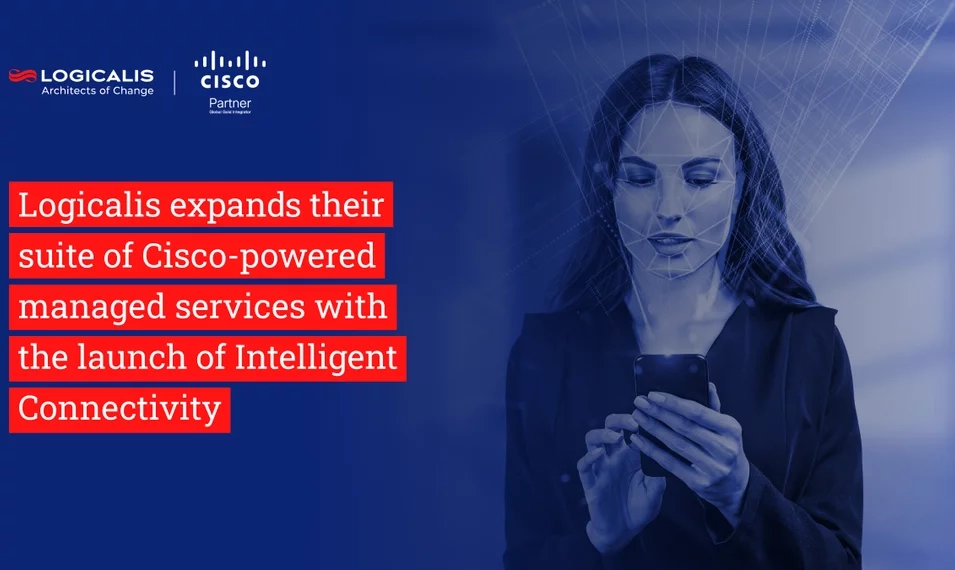
APAC , Sep 8, 2023
Logicalis expands their suite of Cisco-powered managed services with the launch of Intelligent Connectivity
First Cisco Global Partner to achieve Managed Private 5G strategic designation
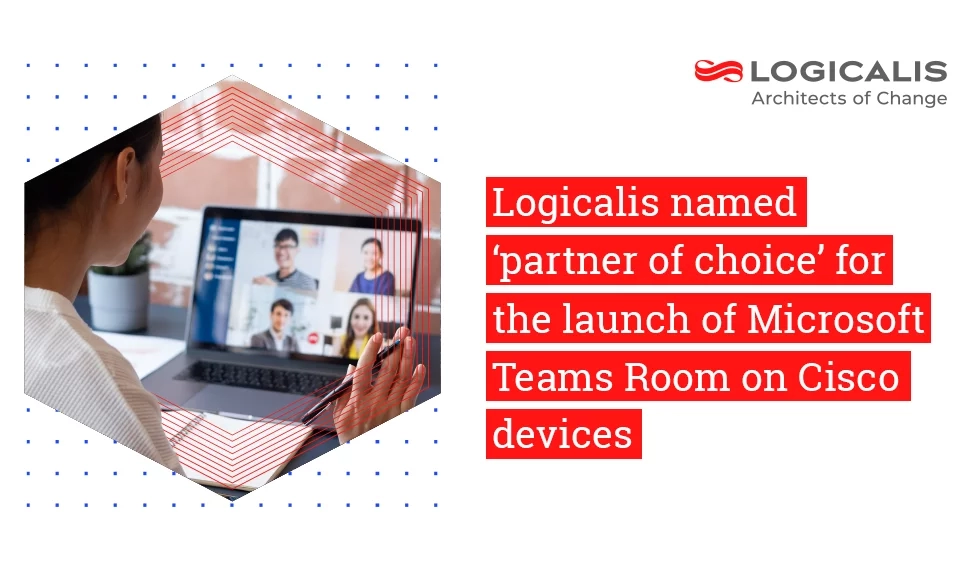
APAC , May 22, 2023
Logicalis named ‘partner of choice’ for the launch of Microsoft Teams Room on Cisco devices
Logicalis, a global IT solutions and managed service provider, today announced that the company has been selected as the partner of choice by Cisco, for the launch of Microsoft Teams Room (MTR) on Cisco devices. This announcement is made in conjunction with Logicalis’ release of its hybrid work-as-a-service offering.

APAC , Mar 3, 2023
Logicalis Appoints Hannah Suar as Managing Director for Singapore
Logicalis, an international IT solutions and managed services provider, is pleased to announce the promotion and appointment of Hannah Suar to the role of Managing Director for Singapore as of March 1st, 2023.
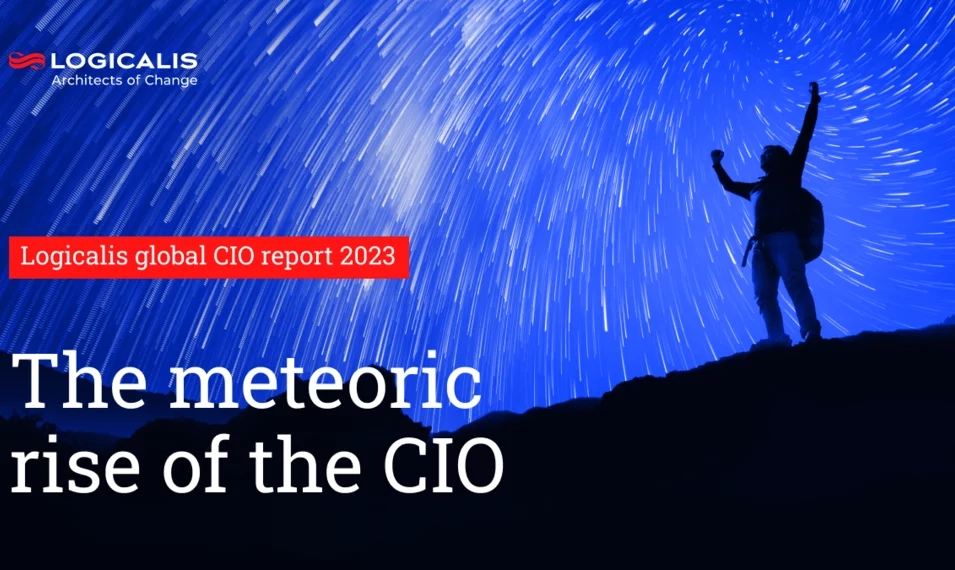
APAC , Feb 16, 2023
Bold leadership elevates CIOs to the boardroom, according to Logicalis global study
CIOs have stepped into the role of digital evangelist and strategic advisor, according to the 2023 Global CIO Survey from Logicalis, a global technology service provider. The study questioned 1000 technology leaders and explores how the role of the CIO is evolving. This year’s survey, The Meteoric Rise of the CIO, demonstrates a monumental shift in the role of the CIO from tech implementor to business leader.

APAC , Apr 25, 2022
Logicalis target digital-first leaders with launch of managed Intelligent Connectivity service
Logicalis, a global IT solutions and managed service provider, today announces the launch of Intelligent Connectivity, a solution designed to empower digital-first customers to improve business performance and user experience by operating with connectivity as a managed service.

APAC , Jan 10, 2022
Logicalis take the digital workplace ‘beyond productivity’ with the launch of collaboration suite
Logicalis, a global IT solutions and managed service provider, today announces the launch of their digital workplace solution designed to help organisations manage, measure and scale the collaboration experience for the digital workplace.

APAC , Jul 28, 2021
Logicalis recognised as global finalist of 2021 Microsoft Solutions Assessment Partner of the Year
Logicalis, an international IT solutions and managed service provider, today announced it has been named a global finalist of Solutions Assessment 2021 Microsoft Partner of the Year Award.

APAC , Jul 27, 2021
Logicalis recognised as global finalist of 2021 Microsoft Solutions Assessment Partner of the Year
Logicalis, an international IT solutions and managed service provider, today announced it has been named a global finalist of Solutions Assessment 2021 Microsoft Partner of the Year Award.

APAC , Jul 6, 2021
Anthony Woodward appointed Logicalis Australia CEO
Logicalis, an international IT solutions and managed services provider, today announces the appointment of a new regional CEO for the Australian market.

APAC , Jun 2, 2021
Logicalis acquires advanced network infrastructure and 5G solutions specialist siticom
Logicalis, a leading international IT solutions and managed services provider, today announces the acquisition of the network transformation and modernisation specialist, siticom.
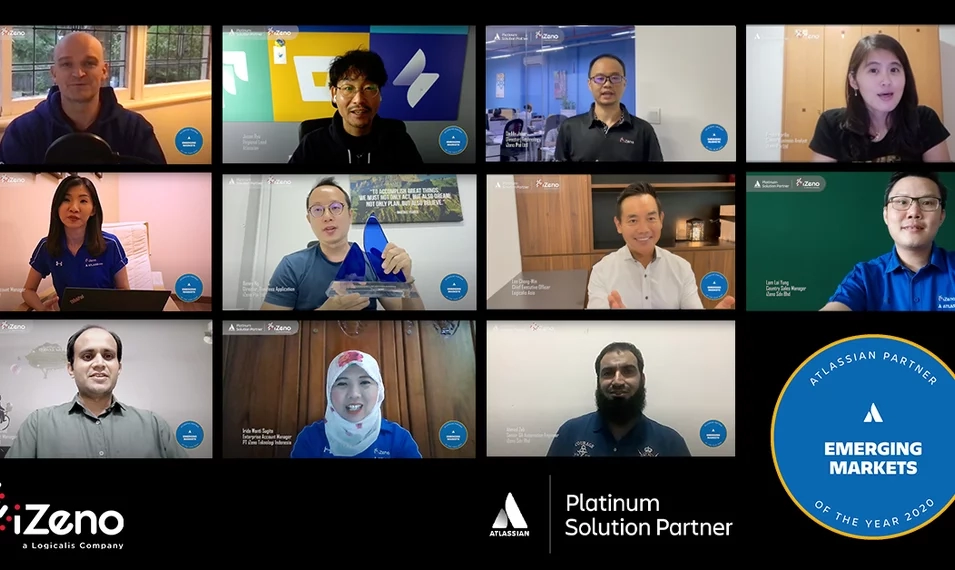
APAC , May 4, 2021
iZeno Receives Atlassian Partner of the Year 2020: Emerging Markets
Atlassian announced today that iZeno Pte Ltd has received Atlassian Partner of the Year 2020: Emerging Markets for their outstanding contribution and achievements during the calendar year 2020.

APAC , Apr 7, 2021
Logicalis acquires cybersecurity specialist Áudea
Logicalis, a leading international IT solutions and managed services provider, today announces the acquisition of a majority stake in Áudea, a company which specialises in cybersecurity and regulatory compliance.

APAC , Apr 5, 2021
Logicalis receives Cisco DevNet Specialised Partner status
Logicalis Group, international IT solutions and managed services provider and digital transformation enabler, has today announced it has been globally awarded Cisco DevNet Specialised Partner status through DXNet, a Logicalis company.

APAC , Feb 17, 2021
Logicalis Renews Microsoft Azure Expert Managed Service Provider Status
Logicalis Group, an international IT solutions and managed services provider, has today announced its renewed status as a Microsoft Azure Expert Managed Services Provider (MSP).

APAC , Nov 5, 2020
Logicalis Asia enhances digital transformation capabilities with the acquisition of iZeno
Logicalis Asia enhances digital transformation capabilities with the acquisition of iZeno

APAC , Oct 2, 2020
Logicalis appoints Mick McNeil Vice President for Business Development as Microsoft & Logicalis build Mutual Strategic Partnership
Logicalis appoints Mick McNeil Vice President for Business Development as Microsoft & Logicalis build Mutual Strategic Partnership
, Feb 5, 2020
Logicalis Announces New Brand Positioning - ‘Architects of ChangeTM’
Logicalis Announces New Brand Positioning - ‘Architects of ChangeTM’ Logicalis announces its new brand positioning, reinforcing the company’s investment in its customers’ digital transformation
, Oct 1, 2019
Logicalis recognised as a leader in IDC MarketScape Report on Worldwide Network Consulting Services Vendor Assessment
Logicalis recognised as a leader in IDC MarketScape Report on Worldwide Network Consulting Services Vendor Assessment.
, Jul 4, 2019
MDEC Officiates Launch of Logicalis Malaysia's New Headquarters in Kuala Lumpur
MDEC officiates launch of Logicalis Malaysia’s new headquarters in Kuala Lumpur
, Dec 11, 2018
Logicalis Malaysia Announces Bernard Chiang as New Managing Director
Logicalis Malaysia Announces Bernard Chiang as New Managing Director
, Apr 19, 2018
Logicalis Appoints Dewi Sanly as Managing Director for Singapore Operations
Singapore, April 12, 2018 – Logicalis Group, the international IT solutions and managed services provider, today announced a key appointment: Dewi Sanly as Managing Director (MD) for its Singapore operations. Based in Singapore, Dewi will take on her role with immediate effect, reporting to Chong-Win Lee, Logicalis Asia CEO.
, Dec 4, 2017
APAC CIOs Pushing Ahead with Digital Transformation
Singapore, 4 December 2017 - CIOs both in Asia Pacific (excluding Japan) and globally are more determined than ever to deliver digital transformation, with big plans to overcome these challenges and unlock the benefits of digital transformation, according to a global survey carried out by Logicalis, the international IT solutions and managed services provider.
, Nov 28, 2017
Chong-Win Lee appointed CEO for Logicalis Asia Operations
Singapore, 28 November 2017 - Logicalis Group, the international IT solutions and managed services provider, today announced the appointment of Chong-Win Lee as the CEO of its Asia Operations. Lee will start his new role on the 11th December 2017, reporting to Logicalis Group CEO, Mark Rogers.
, Jun 20, 2017
Logicalis Acquires Packet Systems Indonesia to Grow Customer Base and Strengthen Indonesian Operations
Singapore, 20 June, 2017 – Logicalis (www.logicalis.com), an international IT solutions and Managed Services provider, together with Metrodata (www.metrodata.id), a dominant ICT company in Indonesia, today announced it has agreed to acquire Packet Systems Indonesia (PSI), a leading ICT systems integrator and services company.
, May 4, 2017
Logicalis UK Appoints Stuart Radcliffe as New Finance Director
Logicalis, the international IT solutions, managed services and cloud provider, today announced the appointment of Stuart Radcliffe as Finance Director. Radcliffe takes up the position with immediate effect, replacing Paul Crilly who has taken on a new role within a Datatec Group company, in Australia.
, Mar 6, 2017
Logicalis expands its global reach with new operation in South Africa
London, 6th March 2017 – Logicalis, the international IT solutions and managed services provider, today announced it has started up a business operation in Cape Town, South Africa.
, Oct 24, 2016
Digital impact being felt by majority of Asia’s CIOs in 2016
Singapore, 24 October – Businesses across Asia are responding to the threat posed by digital disrupters like Über and Airbnb, a trend that poses significant challenges for CIOs, a study carried out by international IT solutions and managed services provider Logicalis (www.logicalis.com) has revealed.
, Jun 9, 2016
CIO pressures and priorities under the spotlight
Singapore, 9 June 2016 – For the past three years, Logicalis, an international IT solutions and managed services provider (http://www.logicalis.com), has conducted a global survey of CIO pressures and priorities.
, May 19, 2016
Logicalis Acquires Lantares, a Consultancy Company Specialised in Business Analytics, to Bring New Capabilities to Their Spanish Enterprise Operation
London, 19 May, 2016 – Logicalis, an international IT solutions and managed services provider, today announced it has agreed to acquire Lantares S.L., a Spanish company specialised in Analytics and Business Solutions. Lantares’ specialism adds new and attractive solutions to Logicalis Spain’s portfolio.
, Mar 21, 2016
Logicalis, Anuta Networks and Hewlett Packard Enterprise create Software-Defined NFV-Ready Orchestration Platform PoC in Asia Pacific
Singapore, 21 March 2016 – Anuta Networks and Logicalis today announced they are partnering with Hewlett Packard Enterprise (HPE) on a proof-on-concept (PoC), offering a complete managed end-to-end network orchestration solution to top telecommunication customers in Asia Pacific, enabling faster time to market for new and differentiated services.
, Jan 28, 2016
Logicalis Named Tableau Software Channel Partner
Slough, 28 January 2016 – Logicalis, the international IT solutions, managed services and cloud provider, today announced a formal channel partnership with leading business analytics software provider Tableau Software.
, Nov 16, 2015
Bob Bailkoski appointed as Logicalis Chief Financial Officer
London, 16th November 2015 – Logicalis, the international IT solutions and managed services provider, today announced Bob Bailkoski as its new Chief Financial Officer from 16 November 2015.
, Nov 11, 2015
CIOs Line Up to Transform IT in Response to the Shadow IT
Singapore, 11th November 2015: Close to half (41%) of CIOs in Asia and about a third (31%) globally are routinely side-lined when it comes to making IT purchasing decisions, but a growing number (30% in Asia and 42% globally) are now actively embracing a new service provider model in an attempt to stay relevant to line of business colleagues, based on figures from the third annual CIO survey from Logicalis, an international IT solutions and managed services provider (www.logicalis.com).
, Oct 6, 2015
Logicalis Channel Islands will enhance its managed services business with acquisition
London, 6th October 2015 – Logicalis Group, the international IT solutions and managed services provider, announced today that it has acquired Lekscom, a Jersey-based networking and collaboration provider, adding new capability to bolster its Channel Islands operation.
, Jul 29, 2015
Logicalis Acquires MCPc’s Advanced Technology Integration Group
London, 29 July, 2015 – Logicalis, an international IT solutions and managed services provider, has conditionally agreed to acquire MCPc’s Advanced Technology Integration Group (ATIG), and integrate the Midwest focused solution provider into its US operation. ATIG provides IT and professional services including data centre, unified communications, cloud and infrastructure integration throughout the Midwest, and also in select east and west coast markets of the United States.
, May 6, 2015
Logicalis UK Acquires Leading Provider Of Analytics Solutions
Slough, Berkshire, 6th May 2015 – Logicalis has today announced that its UK operation, Logicalis UK, has acquired a company trading as Trovus, who are a leading provider of analytics dashboard solutions to business executives.
, Feb 26, 2015
Logicalis Appoints Rob Evans as COO
Logicalis, the international IT solutions and managed services provider, today announced Rob Evans as its new Chief Operating Officer from 1 March 2015.
, Feb 19, 2015
Logicalis Appoints Mark Rogers as CEO
Logicalis Group, the international IT solutions and managed services provider, today announced that Mark Rogers steps into the role of Chief Executive Officer from 1st March 2015, the start of its financial year.
, Dec 16, 2014
Logicalis US Expands West Chester Operations Center
Solution Provider Invests in New Technical Resources, Adds Customer Briefing Center and Demo Showcase
, Dec 3, 2014
CIOs seek to transform IT departments into ‘internal service providers’ as line of business power shift gathers pace – Business driven IT Selection moves out of the shadows
Shadow IT goes mainstream: A quarter of CIOs have lost control of ICT spending but plan to regain control through service-focused transformation.
, Dec 2, 2014
Logicalis acquires majority stake in Wi-Fi experience enabler ITUMA GmbH
The joint venture operation will focus on offering ‘Wi-Fi experience as a service’ portfolio to commercial, public sector and education customers.
, Dec 2, 2014
Logicalis will expand its German presence with Inforsacom acquisition
To provide a ‘winning’ combination of database, storage and backup solutions.
, Sep 15, 2014
Logicalis Group appoints Arnaud Spirlet as its new Head of Europe
Logicalis Group, the international IT solutions and managed services provider, today announced the appointment of Arnaud Spirlet as its Head of Europe.
, Apr 14, 2014
Logicalis positioned as trusted SDN technology and business advisor in IDC MarketScape report
Managed services specialist is a ‘contender’ in IDC MarketScape Report focused on network virtualization and SDN.
, Apr 14, 2014
Logicalis Recipient of Global Award for APJC Partner of the Year at Cisco Partner Summit 2014
Logicalis announced today that it has received a Cisco® Partner Summit Global award, recognised as APJC Partner of the Year. Logicalis also received regional and country awards in the US and Latin America.
, Jan 10, 2014
Logicalis acquires 2e2’s four European operations to expand Euro footprint and enhance Service Management Portfolio
Logicalis Group, the international IT solutions and managed services provider has agreed to acquire the four European subsidiaries of 2e2, excluding their UK business, for €24million ($31 million).
, Jan 10, 2014
Logicalis Strengthens Presence in Key Australian Geography and Broadens Service Offerings with Acquisition of Corpnet
Logicalis Group, the international IT solutions and managed services provider, has agreed to acquire Corpnet, a Brisbane-based solution provider, from e-Business Systems Ltd. Corpnet provides data centre, cloud and managed services solutions to the Queensland mid-sized and enterprise markets. The acquisition consideration is comprised of $2.7m on completion with an additional potential earn-out payment of $0.6m.
, Jan 10, 2014
Logicalis Wins Cisco Global Enterprise Partner of the Year at Cisco Parner Summit 2012
Logicalis announced today that it is the recipient of a Cisco Partner Summit global award for Enterprise Partner of the Year. Logicalis also received 13 theatre, regional and country awards across Latin America, Europe, the United States and Asia Pacific.
, Jan 9, 2014
Logicalis Asks CIOs: Is There a Smarter Way to Manage Storage?
Solution Provider IDs Top Three Reasons CIOs Are Embracing New Storage Technologies
, Jan 9, 2014
New Logicalis Program Tackles IT Pros’ Top BYOD Concerns
Solution Provider Invites CIOs, IT Pros to Attend “Best Practices” BYOD Webinar & Online Roundtable,Offers Attendees Free Copy of Gartner’s “Implementing a BYOD Program” Report
, Jan 9, 2014
Logicalis US Identifies Six Steps that Simplify Moving to the Cloud
Solution Provider Tells CIOs How to Advance Their Journey to the Cloud
, Jan 9, 2014
Logicalis US Asks Business Leaders What They’re Doing with All that Data
Solution Provider Launches SAP HANA Initiative to Answer Need for Real-Time Business Analytics Among CIOs and Corporate Decision Makers
, Jan 9, 2014
Logicalis US to CIOs: Legacy Storage Just Won’t Cut it in Tomorrow’s Workplace
Solution Provider Offers Five Reasons to Conduct a Storage Assessment Today
, Jan 9, 2014
Logicalis US Calls Converged Storage a Catapult for Virtualization
Technology Solution Provider Offers Downloadable White Paper to Help IT Pros Store and Manage the More Than 2.2 Exabytes of Data Created Daily
, Jan 9, 2014
Logicalis US to CIOs: SAP HANA is Not a One-Size-Fits-All Proposition
Technology Solution Provider Offers Informational eBook, Free SAP HANA Toolkit to IT Pros
, Jan 9, 2014
Logicalis US Unveils First Stop on the Road to a More Efficient Data Center
Solution Provider Offers IT Pros Tips for Moving from a Component-Based Architecture to a Virtualized Environment
, Jan 9, 2014
Logicalis US Warns: The United States Must Do More to Prepare for IPv6
Solution Provider Releases Worldwide IPv6 Readiness Ranking
, Jan 9, 2014
Logicalis US to IT Pros: Create a Blueprint for IT Transformation
Solution Provider Answers the Question “Why Virtualize?”
, Jan 9, 2014
Logicalis US Gives Enterprise CIOs Six Tips for Creating a Converged Infrastructure
Solution Provider Outlines Third Step in the IT Transformation Journey, Offers IT Pros Downloadable eBook, Feature Article on Converged Infrastructure
, Jan 9, 2014
Logicalis US Identifies Fourth Stage in Enterprise Journey to the Cloud
Solution Provider Gives IT Pros Four Truths about Data Protection; Offers Free, Downloadable White Paper on Disaster Recovery
